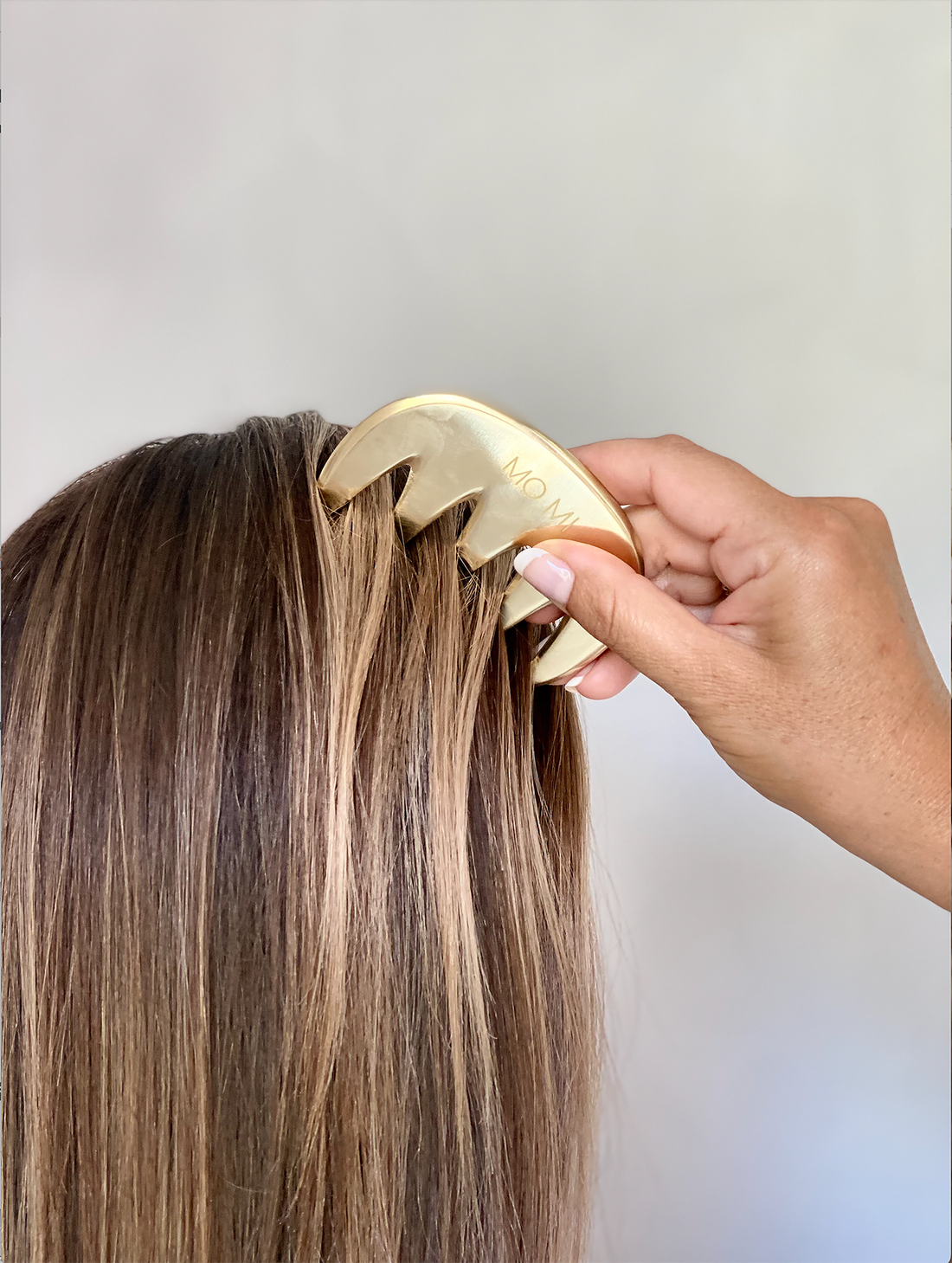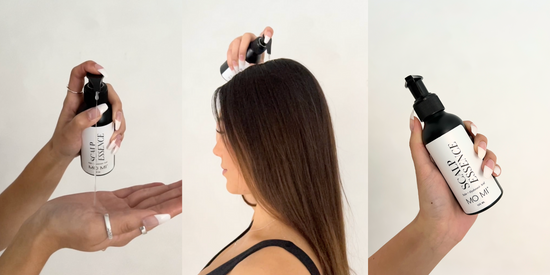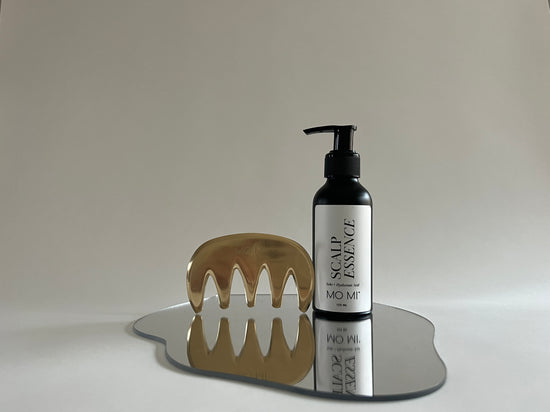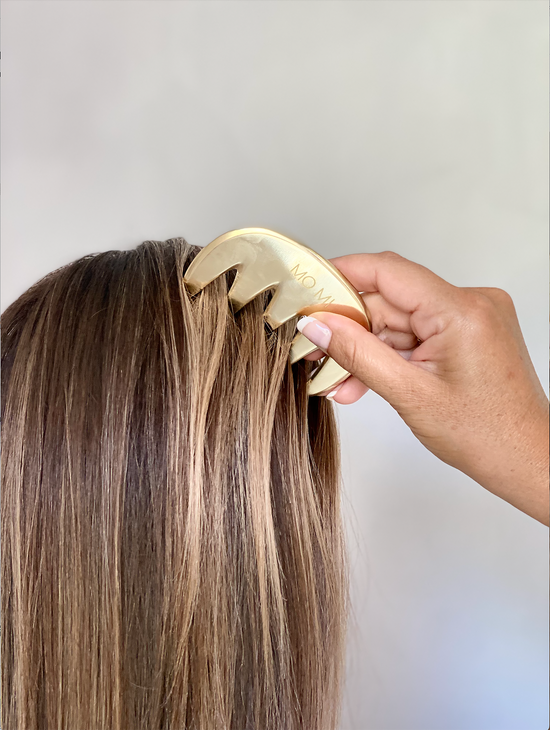By Kate Downes, MSAOM, Chinese Medicine Practitioner
The most beautiful hair is healthy hair. And healthy hair requires a healthy scalp!
Yet, so many of us forget to give our scalps the TLC they need. The result? Dry, damaged, lusterless hair and lots of itching and irritation.
A healthy scalp and gorgeous hair are possible with a simple self-care ritual that gets to the root: combing therapy. While combing therapy has been around for thousands of years, it is just now gaining popularity as a modern self-care and beauty method.
Read on to learn more about this holistic hair care ritual and how you can use it to make your hair shinier, stronger, and healthier than ever.
What is Combing Therapy?
Combing therapy is a simple ancient technique that developed thousands of years ago as part of Traditional Chinese Medicine (TCM). It allows you to enhance your body’s self-healing abilities by gently stimulating the scalp.
You can think of combing therapy as a type of gua sha that’s just for the scalp. With a specialized comb or scalp gua sha, you apply gentle pressure to the scalp to release tension, clear debris, increase circulation, and restore balance throughout the head and body.
Locally, the points flush health-boosting blood and qi through the entire head. When stimulated, they relieve irritation, physical tension, and even calm the mind.
But, the deeper power of these acupoints lies beyond the scalp; each point is connected to an energetic channel that runs along the length of the body and through various organs. This means that by stimulating the scalp, we can help restore balance to the whole body!
Along with the TCM theories of how combing therapy works, we also know this technique improves hair, scalp, and whole-body health by:
-
Stimulating hair follicles.
Each pass of the comb helps to stimulate the scalp and bring nourishing circulation to the hair follicles. Since poor follicle circulation is common in hair loss, combing may help prevent premature hair loss and encourage healthy, abundant hair growth.
-
Clearing excess build-up.
The scalp produces sebum (a natural oil) to lubricate and moisturize the hair and scalp. But, you can have too much of a good thing when it comes to sebum. Excess sebum easily builds up and blocks your hair follicles, leading to issues like greasy hair, itching, and dandruff. Combing therapy clears away sebum buildup to keep your scalp clean and give your hair follicles space to breathe.
-
Calming the nervous system.
Along with boosting hair health, combing therapy is an excellent way to relax and reduce stress. Studies show that therapies that stimulate the scalp (like combing or scalp massage) powerfully calm the nervous system, reduce heart rate, blood pressure, and other physical signs of stress.
Benefits of Combing Therapy
If you’re tired of battling an irritated scalp or lusterless hair, combing therapy is for you. Here are a few things you can look forward to when you practice combing therapy regularly:
- Shinier, stronger hair
- Healthier scalp
- Improved circulation
- Reduced scalp irritation, itching, and inflammation
- Less dandruff and flakes
- May stimulate hair growth
- Reduced tension and headaches
- Better sleep
- Natural boost in energy
- An overall sense of calm and wellbeing
How to Try Combing Therapy at Home
Adding in a daily combing therapy session is one of the best things you can do for your hair, mind, and body. Thankfully, it’s incredibly easy to learn and a joy to practice! Here’s how you can practice combing therapy right at home:
-
Prep. You can use combing therapy on dry or damp hair. For the most nourishing experience, use a comb and scalp essence specifically designed for combing therapy, like MO MI’s Set.
-
Glide. Place the scalp gua sha tool or comb on your forehead at the hairline. Gently glide the tool backward making one smooth movement from forehead to nape.
-
Cover the entire scalp. Move in slow, long strokes from the crown of your head to the nape of your neck, covering the entire scalp. Make at least 3-5 passes over each section.
- Reverse and repeat. Flip your hair down and repeat the process, moving from nape to forehead. Make at least 3-5 passes over each section.





